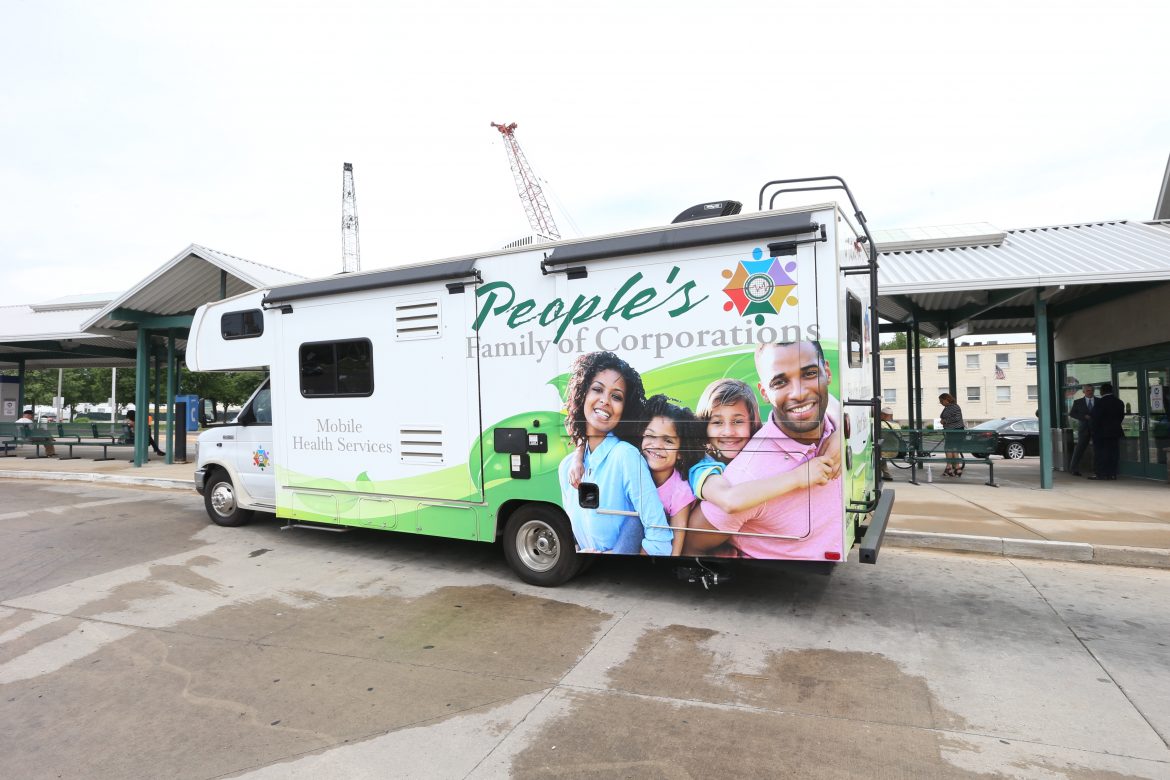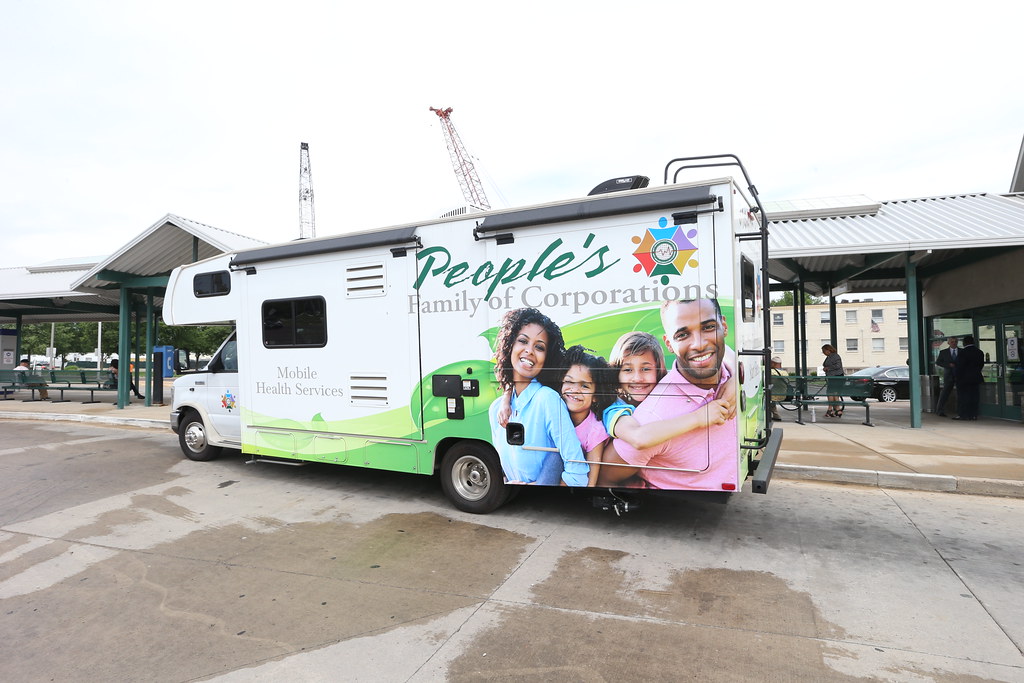
New Mobile Health Screening Van to Start Serving Metro Transit Locations in City of St. Louis on June 5
Starting June 5, Metro Transit riders and local residents will have access to free mobile health screening services at four locations in the City of St. Louis.
A Mobile Health Van operated by Betty Jean Kerr People’s Health Centers will provide free blood pressure screenings and other health assessments to transit riders and nearby residents on Tuesdays from 9 a.m. to 1 p.m., alternating locations each week during the month. The first Tuesday of the month, the van will be at the Forest Park-DeBaliviere Transit Center; the second Tuesday of the month, at the Grand MetroLink Station; the third Tuesday of the month at the Civic Center Transit Center; and the fourth Tuesday of the month at the Riverview Transit Center.
The new program is a partnership between Bi-State Development, Metro Transit, the Betty Jean Kerr People’s Health Centers and the St. Louis Department of Health. Representatives from the partnership were joined by St. Louis Mayor Lyda Krewson on May 31 to introduce the new program.
“We have wonderful partners at the City of St. Louis, Betty Jean Kerr People’s Health Centers and the St. Louis Department of Health who are committed to improving access to health care, and they see the amazing potential of connecting health care to public transit to reach thousands of Metro riders and residents in underserved communities,” said John Nations, Bi-State Development President and Chief Executive Officer.
The mobile health van services are free, with no insurance, payment or copay required. Adults 18 years of age and older can stop by the van during operating hours with no appointment necessary. In addition to providing blood pressure screenings and other health needs assessments at no charge, adults will also be provided with assistance in applying for health insurance and options for follow-up care at community health centers in the area.
“Access to health care is so important, and regular care and regular checkups are vital when it comes to maintaining healthy and happy lifestyles,” said St. Louis Mayor Lyda Krewson. “Addressing minor health conditions before they turn into major issues improves the quality of life for residents as well as minimizes disruptions to our lives and helps keep down the costs of health care for everyone.”
Research shows that there are areas of the St. Louis region with populations who have lower access to health care resources and experience greater barriers associated with cost of care. This not only has a negative effect on their health, but it also leads to more emergency room admissions, more hospital admissions for preventable conditions, and overall higher health care costs.
“About a year ago, we conducted a community health needs assessment with our regional partners, and one of the five strategy areas that was outlined was access to health care,” said Melba Moore, Director of the St. Louis Department of Health. “We are interested in putting services where the people area. That is true public health.”
“This new program is strengthening our ability to bring healthcare to residents of the St. Louis community who are medically uninsured,” said Vickie Wade, Executive Vice President of Clinical Services with Betty Jean Kerr People’s Health Centers. “Our goal is to educate, support and increase awareness of quality healthcare and social services.”
Last December, through a grant from the Federal Transit Administration, Bi-State Development launched a mobile health screening vehicle program in partnership with the St. Louis County Department of Public Health. Through this program, a mobile health screening vehicle visits four transit locations in North St. Louis County, providing basic health assessments and assistance to transit riders and residents in underserved communities in St. Louis County.
“This new mobile health van program in the City of St. Louis, along with the services we’ve developed in St. Louis County, can create an important bridge for those who need better access to health care resources,” said John Wagner, Director of the Bi-State Development Research Institute. “Our goal isn’t just an initial health assessment. We want to help people establish connections to regular, affordable and sustainable long-term health care resources.”
1st Tuesday: Forest Park-DeBaliviere Transit Center (250 DeBaliviere Ave.) — 9 a.m. to 1 p.m.
2nd Tuesday: Grand MetroLink Station (3560 Scott Ave.) — 9 a.m. to 1 p.m.
3rd Tuesday: Civic Center Transit Center (401 S. 14th Street) — 9 a.m. to 1 p.m.
4th Tuesday: Riverview Transit Center (9000 Riverview Drive) — 9 a.m. to 1 p.m.
NOTE: During months where there is a fifth Tuesday, the van will be operate at the Civic Center Transit Center
About Metro Transit
Metro Transit operates the St. Louis region’s public transportation system which includes 400 clean-burning diesel buses that serve 83 MetroBus routes in eastern Missouri and southwestern Illinois. Metro also operates MetroLink light rail vehicles on 46 miles of track serving 37 stations in the two-state area, and operates Metro Call-A-Ride, a paratransit fleet of 122 vans. Metro Transit is one of five enterprises operated by Bi-State Development

